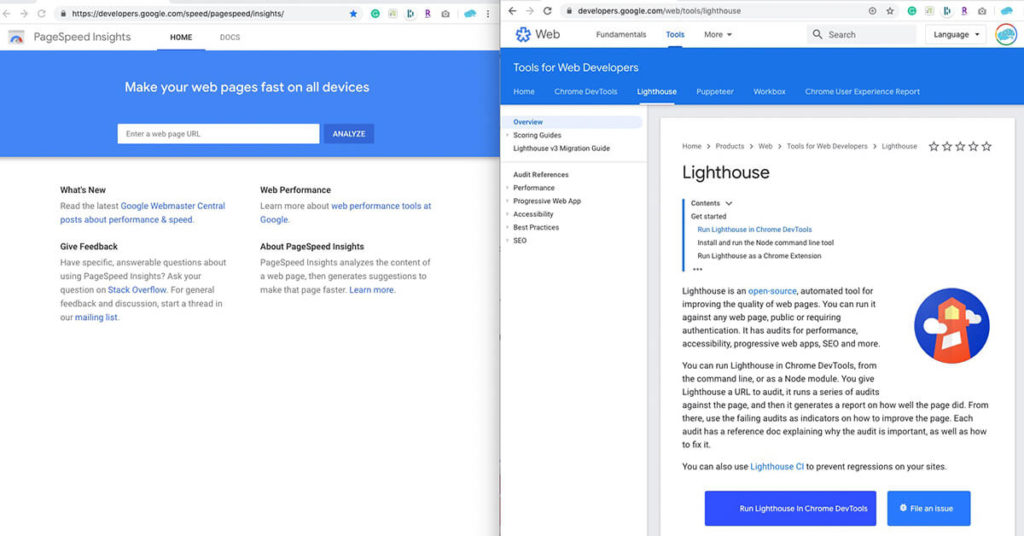If you are a business owner and have your email linked to your website domain, you get hammered with a few ‘website audit’ emails per month.
“We noticed that your website speed was a D-“
“You have empty ALT tags on your homepage”
“You have inaccurate business listings on 17 directories”
These scare tactics come into my inbox just as often as yours.

Let’s answer the real question – why should I care?
The Problem with Website Audits
There is nothing wrong with an audit. Getting a gauge on your website and finding out what you can improve is always a great thing. But often we get results and they are treated as if everything equally important. Your missing ALT tag is not the same as having a noindex tag.
Digital marketing companies use these audits and tools to sell you their products. Sometimes you need these products and the company is 100% in the right. Other times, they are finding the scariest or worst aspect and trying to get your business.
Let’s try this again:
“You are missing an XML sitemap”
or
“You are not listed on 100 Search directories”
What sounds scarier?
At this point, you know that I’m trying to have you pick the 100 Search Directories. Of course, this sounds bad. In all actuality, most of these directories are fluff and will never get you a single website visitor. On the other hand, if you don’t have a sitemap, Google will have a much harder time finding your content and less likely to show your website on searches.
Now, what sounds scarier?
Web Rules
We are all playing by the same rules on the Internet. You would think all audits would give similar results, yet they don’t. The rules of the web do change and are interpreted differently. A tool made in 2007 is different than what we use in 2020. Algorithm changes and technology changes make a huge difference.
Audits Are Not the Same
Let’s not forget that all audits have different objectives. Are you looking to see if your code is clean or are you looking to see if you are likely to rank for a specific keyword? A technical audit and an SEO audit are two different things. Having a slow website doesn’t matter if you only care about being technically correct.
Who should I trust?
First, find out what website goal you have. Do you want to speed up your website? Do you want to see if it is accessible? More than likely, you want to improve keyword ranks.
I would start by using audits from the source. Google has a dominant hold on search traffic, so if they provide tools, it would make sense to take their criticism.

Ask yourself, what does the source have to gain. If a salesperson gives you an audit, you are smart enough to ask why these metrics matter. More importantly, do they benefit by selling you a product to increase these metrics? Are they actually fixing the problem or trying to help sell you a resolution through their marketing?
Example:
You don’t rank for your #1 keyword in your local city...
because…
You come back with a less than stellar website speed.
Website Audit Sales Pitch

This company wants to sell you SEM (Search Engine Marketing or Pay-Per-Click) for the keyword. You can buy that keyword for x.xx per click to increase your leads.
….yes, this could help. But wouldn’t it make sense to fix the speed issue with your website (since this was an issue on your audit)?
This happens frequently.
A good audit tells you what is wrong with your website and gives some recommendations to fix them. Even better, some give you the tools to fix on your own. If you don’t feel up to the challenge, someone will offer to help you for a fee.
How a Website Audit and Pitch Should Be Done
- Identify problems.
- Explain how they impact your site.
- Justify why they should be corrected.
- Offer a tangible way to fix and charge accordingly.
I love a good audit. These tools can give you direct answers to your questions – how can I improve my website? Most tools tell the truth, but there is no shortcut. We are still responsible for sniffing out the BS and can’t plead ignorance.
More importantly, we have to understand that there is a ying to every yang in web design and development. Scoring 100% on every audit is impossible – but that is another topic for another day.
(If you want that to be today, learn more about creating the perfect website.)

About the Author
Eric Hersey
Eric Hersey is a Wheeling Web Designer and Digital Marketing Specialist that has been working in graphic and web design since 1999. He has applied his techniques and knowledge to help craft his own personal brand and hobby sites – but has also helped many brands and businesses grow online using powerful organic search tactics.



